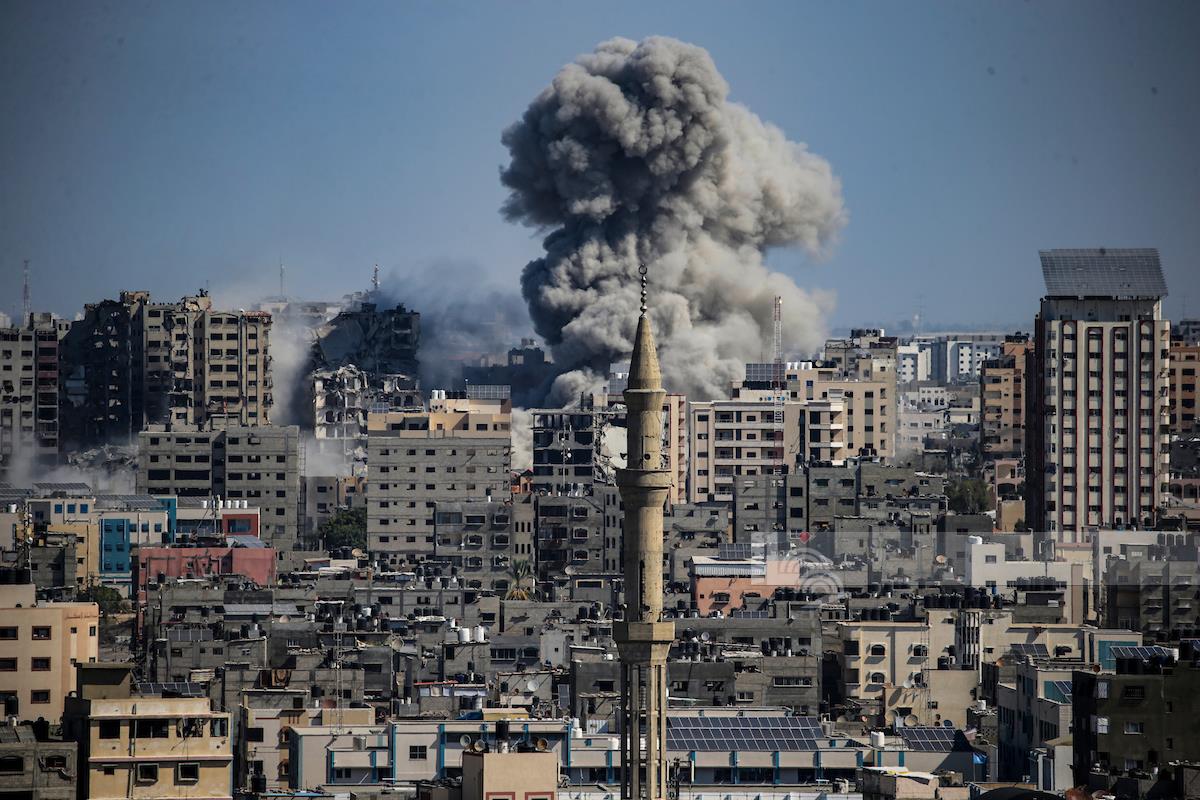Security Adviser Tzachi Hanegbi says Israel will defend itself against “baseless accusations,” despite numerous leaders calling the occupation’s actions in Gaza a genocide.
Israel has announced its intention to robustly defend itself in The Hague after South Africa filed a case at the International Court of Justice (ICJ), accusing the occupation of crimes of genocide against Palestinians in Gaza.
In an application to the court on Friday, South Africa described Israel’s actions in Gaza as “genocidal in character because they are intended to bring about the destruction of a substantial part of the Palestinian national, racial and ethnical group”.
Leading Palestinian organisations welcomed South Africa’s International Court of Justice’s (ICJ) genocide case against Israel.
However, Israel now plans to present its case at the International Criminal Court in The Hague, aiming to dismiss South Africa’s petition for an interim order demanding the immediate suspension of Israeli military actions in Gaza, National Security Adviser Tzachi Hanegbi told Ynet on Monday.
In a statement to Ynet, Hanegbi said, “Israel, a long-standing signatory to the Genocide Convention, will not boycott the proceedings. We will participate and refute the absurd accusation that amounts to blood libel.”
With a hearing for the interim order expected within one to one and a half months, Israelis’ immediate objective is to prevent any ruling that could enforce a ceasefire in Gaza, despite growing international calls for it to halt its indiscriminate bombing of the Strip and stopping the massacre it is committing against Gazans.
The Gaza Strip’s health ministry reported on Tuesday that nearly three months of war with Israel have resulted in at least 22,185 casualties.
The full hearings on the claim could span four to six years.
Israel also plans to leverage diplomatic channels to garner support against South Africa’s initiative.
South Africa, a vocal supporter of the Palestinians, has repeatedly criticised Israel, drawing parallels between the Palestinian struggle and its past under apartheid.
Notably, South Africa withdrew its ambassador from Israel in 2018 and recently recalled all diplomats following the occupying state’s attack on Gaza.
South Africa’s filed case delineates the alleged genocidal actions of Israel in Gaza, highlighting the intent to exterminate a part of the Palestinians.
The case distinguishes these acts from other international law violations and points to statements by Israeli officials as evidence of genocidal intent.
The application to the court does not depend on verifying each incident but seeks to demonstrate that some acts might constitute violations under the Genocide Convention.
Both Israel and South Africa are UN members and signatories to the Genocide Convention. The ICJ’s role, as defined in Article IX, is to address disputes under the Convention.
South Africa’s basis of application is repeated condemnation and lists the Presidents of Palestine, Algeria, Bolivia, Brazil, Colombia, Cuba, Iran, Türkiye, and Venezuela to have all described Israel’s actions as a genocide, as well as State officials and representatives from Bangladesh, Egypt, Honduras, Iraq, Jordan, Libya, Malaysia, Namibia, Pakistan, Syria, and Tunisia.







